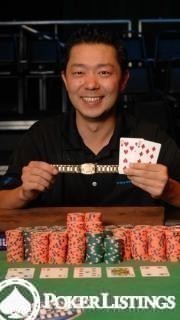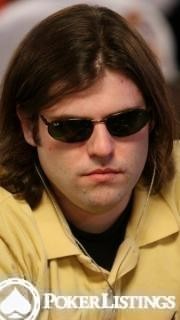To
Have you ever seen Rounders and Teddy KGB eating an Oreo? Well, Matt Damon obviously could tell by the way Teddy ate his cookie exactly how strong his hand was.
That's just one of the examples that just don't work outside of movies.
In most cases tells are contradictory and inconsistent and do not reveal enough information to solely base a
Many experts have written books and articles about tells. Most of them are too broad to actually be useful or they're too narrow and you'll rarely find an opponent exposing this specific tell.
PokerOlymp's Jan Meinert shares 10 tells which (at least in most cases) "work" -- if you're playing against weaker players who don't have a lot of live experience under their belt.
1. Weak Means Strong
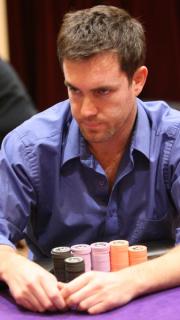
A gloomy face can be revealing.
Players that act weak usually have a strong hand. Sighing, shrugging or a gloomy face very often indicate a very strong hand.
It's a natural instinct when attempting to conceal a big hand to try and appear weak. A player shrugging and raising usually has a strong hand, so don't fall for that trap!
2. Straightened Posture
A player who straightens his posture to play a hand or while in a hand usually has something he's at least interested in.More often than not he even has a very strong hand and is getting ready to pull out the big guns.
3. Abrupt Silence or Flood of Words
A player who normally talks a lot and suddenly becomes silent usually has been dealt a very good hand.The same holds true for players that usually don't talk but all of a sudden start to babble after getting dealt a hand.
4. Sound of the Voice
Players wearingOften the sound of their voice tells a lot about their hand. Players holding a strong hand have an easier time marked cards lenses talking and answering questions.
Players that bluff are often scared to give away a tell and sound insecure.
5. Impatience
A player suddenly waking up and getting impatient during a hand often indicates a strong holding.Asking questions like "who's turn is it" and prompting the dealer to continue indicate the player is in a hurry to rake in a nice pot.
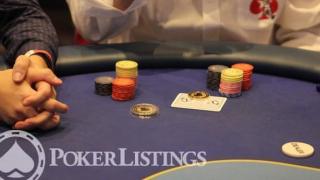
A simple chip on the cards could say a lot.
6. Hole-Card Protection
This tell is really simple: Some players actually fall for the trap to protect their hole cards (by putting a chip on top of them) if and only if they are at least fairly strong.This tell should by all means be exploited to the maximum.
7. Splashing Chips
A player pounding out a bet or splashing chips very often has a weak hand and is trying to cover up for this by acting extra strong.If a player uses a little bit more force than he usually does when placing his chips, he's usually making a bluff.
8. Fumbling and Glancing
A player who, after seeing his hole cards, immediately glances at his chips or starts to fumble with them usually has a very strong hand.Right after seeing his hand he's thinking about the upcoming bet sizing and thus involuntarily looks at his chips.
The same holds true if a player looks at his chips right after the flop has been dealt. It means the flop has helped his hand and he's getting ready to fire up the action.
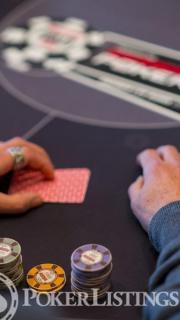
Beware of the freeze.
9. Bet Sizing
Here's a tell that works without looking at the other players: Weak players often have problems with bet sizing and their bets show exactly how strong their hand is.Big cards mean big bets, small cards mean small bets. It's that simple.
If a player repeatedly bets a tiny fraction of the pot with his weak hands, you can be sure he has a monster when he suddenly pulls out the big guns.
10. Freezing
A player who freezes after placing a bet is bluffing very often.It's not easy to talk when you're bluffing. You're afraid to trigger a call by something you say or with a gesture. So a player who is bluffing often refrains from talking and moving, sometimes even breathing.
This tell also works the other way around: a player who is very talkative after placing a bet usually has it.
He's trying to lure in a call by any means possible and trying to keep you interested in your hand.
